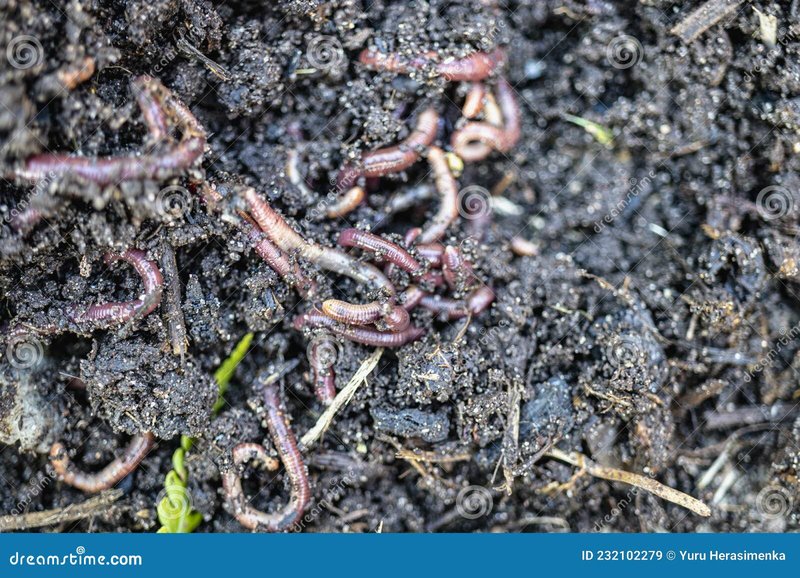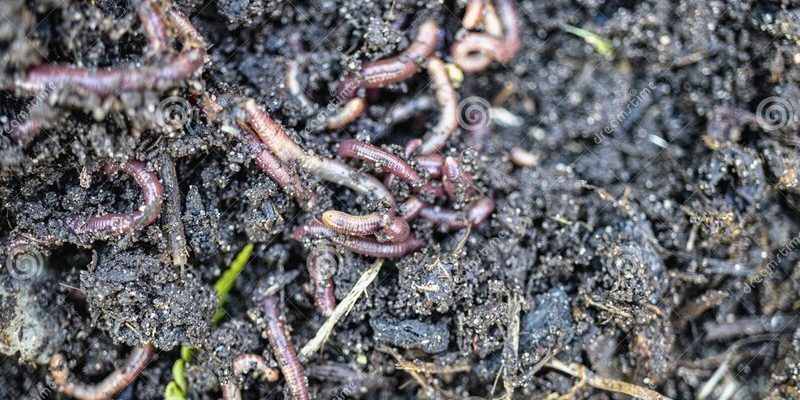
Let’s dive into why having a healthy population of earthworms is vital for your garden’s success. You might be thinking that gardening is just about planting seeds and hoping for the best, but there’s so much more beneath the surface. Literally! Earthworms create a rich, fertile environment that supports growth in ways you might not have considered.
Understanding the Role of Earthworms in Soil Health
Earthworms are like nature’s recyclers. They consume decaying organic matter, like dead leaves and plant debris, and break it down into nutrient-rich material called worm castings. Think of worm castings as nature’s own fertilizer. These little nuggets are packed with essential nutrients like nitrogen, phosphorus, and potassium—all the building blocks your plants need to grow strong and healthy.
But it’s not just about what they eat. As they travel through the soil, they create tiny tunnels. These tunnels improve **soil aeration**, allowing air, water, and nutrients to reach plant roots more efficiently. Imagine trying to breathe through a straw. It’s hard! But when earthworms do their work, they create a network of pathways that allow roots to communicate and stretch out, promoting overall healthy growth.
Another key role they play is in the **soil structure**. Good soil needs a mix of particles and organic material, and earthworms help create that balance. They mix the soil, helping to break up compaction. This is crucial, especially in gardens where the soil may become too dense. A well-aerated soil means happier plants!
The Nutrient Contribution of Earthworms
So, how exactly do earthworms improve soil fertility? It starts with their diet. As they munch on dead plant material, they transform it into a nitrogen-rich substance through their digestive process. These nutrients are accessible and usable by plants, which is why many gardeners regard worm castings as “black gold.”
Let’s break down the benefits:
- Higher nutrient levels: Worm castings contain over 60 different nutrients. They improve the availability of nutrients to plants.
- Enhanced water retention: Their castings can absorb moisture, holding water in the soil longer.
- Beneficial microorganisms: Worms introduce beneficial bacteria and fungi into the soil, which break down organic matter further and make nutrients more readily available.
You might be wondering why this matters. Healthy nutrients in the soil lead to vibrant plants. They resist pests better and can bounce back from stress like drought or disease. Plus, healthy soil means less reliance on synthetic fertilizers, which can harm the environment over time.
Aeration and Soil Structure Improvement
Aeration is critical for plant health, and that’s where earthworms excel. As they move through the soil, they create channels that help air circulate. This circulation is vital for root systems, as it aids in respiration. Strong roots equate to stronger plants.
Another advantage of these soil channels is **water drainage**. When it rains or you water your garden, the water needs a place to go. If the soil is compacted, that water might pool, leading to root rot or other issues. Earthworms keep the soil fluffy and open, allowing excess water to drain away while retaining just the right amount for plants to soak up.
It’s like having a natural irrigation system. The tunnels prevent erosion and promote stability, aligning with a healthy ecosystem. Think of it as nature’s way of ensuring that everything works in harmony.
Earthworm Castings: Nature’s Fertilizer
When we talk about earthworm castings, it’s like discussing a gourmet meal made just for your plants. These rich castings are full of **beneficial microbes** and nutrients that synthetic fertilizers often lack. Using them can lead to more vibrant blooms and bountiful harvests.
You can apply earthworm castings directly to your garden beds, mix them with potting soil, or even use them in compost. Just remember, you don’t need a lot to see results. Even a small amount can significantly enhance the soil’s health. It’s similar to how a pinch of salt can elevate a dish without overwhelming it.
Additionally, castings improve **soil texture**. They help light sandy soils hold moisture while also giving dense clay soils more structure. This means no matter what kind of soil you start with, earthworm castings can make it better.
How to Attract Earthworms to Your Garden
If you’re eager to encourage earthworms to take up residence in your garden, it’s easier than you might think! Start by creating a welcoming environment. Earthworms love **organic matter**, so adding compost and mulching with leaves can be attractive to them.
Here are some simple steps:
- Keep soil moist: Earthworms prefer a damp environment, so water your garden regularly, but avoid overwatering.
- Avoid chemicals: Pesticides and chemical fertilizers can harm earthworm populations. Opt for organic methods whenever possible.
- Add organic materials: Kitchen scraps, grass clippings, and fallen leaves provide food for them and enrich the soil.
You might also consider creating a **worm bin** if you want to speed up the process. This bin provides a controlled environment for breeding worms and collecting their castings for use in your garden. It’s a win-win!
Common Misconceptions About Earthworms
There are a lot of myths about earthworms that can mislead gardeners. One common misconception is that all earthworms are beneficial. While many are indeed helpful, some can be invasive and disrupt local ecosystems, especially in non-native regions. It’s essential to know the types of earthworms in your area.
Another myth is that having a lot of earthworms in your soil means the soil is healthy. While they are a great indicator, it’s not the only measure of soil health. Soil tests for pH, nutrient levels, and compaction are also crucial.
Lastly, many believe that adding any type of earthworm will improve their garden. Not all earthworms thrive in every environment. Researching the species that best suit your climate and soil type can lead to better results.
Incorporating earthworms into your gardening routine can significantly enhance your soil’s fertility and overall health. They play a vital role in transforming your garden into a thriving ecosystem. By understanding how earthworms improve garden soil fertility, you can create a more productive environment for your plants.
Remember, a healthy garden isn’t just about what you see above ground. It’s about what’s happening below the surface. By inviting earthworms into your garden, you’re not only improving soil health but also fostering a sustainable gardening practice. So, the next time you dig into the earth, take a moment to appreciate those little wrigglers—your silent partners in gardening success!

